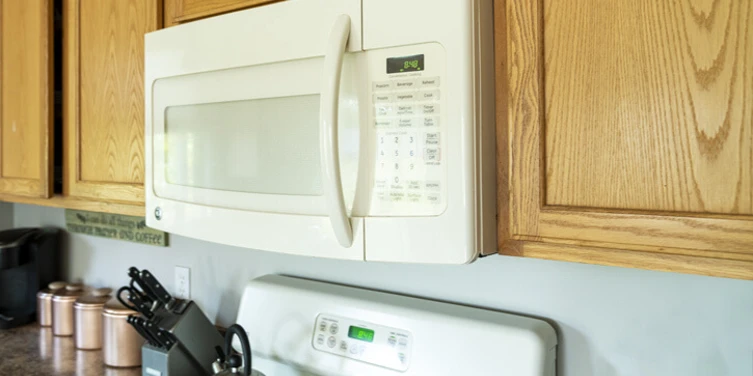Microwave Lifespan Notes: How Long Do Microwaves Last?

The typical microwave lifespan is five to ten years, with an average of eight years. While microwave ovens are extremely convenient, they have a shorter lifespan than many other common kitchen appliances.
Below, Mr. Appliance® is sharing our best tips for making your microwave last as long as possible.
How Long Should the Microwave in Your Last?
While the average microwave lasts about eight years, microwave lifespan depends on several factors, including frequency of use and maintenance. So the answer to, “How long do microwaves last?” can vary quite a lot.
Most households use the microwave for about 20% of main meals. If your family uses the microwave for more than 1 out of 5 meals, your microwave’s lifespan is likely to be shorter than average. If you chose a cheaper model, it may not last as long as something more high-end. Your microwave’s lifespan can be shortened even further if the wrong items are placed inside, which may cause irreparable damage or risk a fire.
You can learn about the lifespan of your other home appliances here.
Signs You Need to Repair or Replace the Microwave
At some point, your microwave will need to be replaced. But there are many situations in which a repair may be the more cost-effective option.
Either way, you should know the warning signs to look for:
- Cooking times are off. If your food cooks too quickly or too slowly, test the microwave’s power by placing a cup of water inside and turning it on for two minutes. If the water isn't piping hot when you take it out, it may be time to repair or replace the unit.
- The door seal is compromised. The door seal, or gasket, is an important safety feature designed to contain low levels of radiation. If the seal is loose, that’s a problem. Replacing the seal is not too complicated, especially with professional assistance.
- Issues with the keypad. If one or more buttons on the keypad is not responsive, it may significantly hamper the functionality of your microwave. If a good cleaning doesn't resolve the issue, schedule with Mr. Appliance for microwave repair services.
- Old age. If your microwave is approaching ten years old, consider replacing it with a new, more energy-efficient unit.
- Odd smells. A burning smell, smoke, and sparks are signs of a potentially dangerous microwave problem. You should immediately turn off and unplug the microwave before scheduling a repair.
If you’re experiencing any of these microwave problems, check out our tips about which small appliances are worth being repaired. Or connect with your local Mr. Appliance to see whether repair or replacement will be the best course of action.
Tips to Maximize Your Microwave's Lifespan
Get the most out of your investment with these tips:
- Ensure there is adequate air circulation around the microwave.
- Use a surge protector to safeguard the electrical components.
- Avoid placing metal objects inside the microwave.
- Clean the microwave frequently with gentle soap and water.
- Do not turn the microwave on when it’s empty.
- Schedule microwave repair as soon as you notice a problem.
The skilled professionals at Mr. Appliance offer microwave repair services you can count on. We’ve made it easy to schedule service online or find the nearest Mr. Appliance location.
Just for Fun: A Brief History of the Microwave Oven
The microwave was invented by accident in the 1940s by an engineer who was testing a military-grade magnetron and discovered it had melted a snack he was carrying in his pocket. The first commercial microwave weighed 750 pounds! In 1967, Amana® produced a more compact, affordable model for home use.
The microwave oven of today is much safer than its predecessors, varying in price depending on the make and functionality. More than 90 percent of US households have either a countertop or mounted microwave.
 Click to call
Click to call


